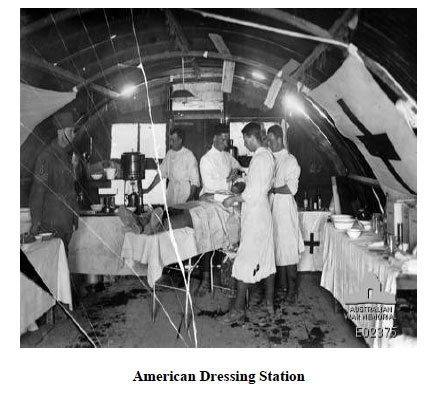
You’re in For a Big Surprise
6th June 1918
Belleau Wood
Jack found himself alone, not in the true sense of the word, but alone without Johnnie. His best mate had been killed the day before. They were ordered to enter Belleau and eliminate or at least drive off the Germans who were holed up in just one corner of the Wood. Their unit; the 4th Marine Brigade were ordered to advance straight ahead into the Wood then come around and flank the German troops. The actual situation was that the Krauts had the whole Wood covered and had ample machine guns to kill every last marine, which was their intention.
They nearly did. The casualty rate was enormous. Jack was lucky to survive the fight; not so Johnnie.
Jack was waiting for the order to advance and looked around at his men – they all looked very pensive, if not shit-scared. The first assault by the 1st Battalion 5th Marine Regiment had begun their day early at 5 am. The word came back that they had been successful in capturing Hill 142. This was a strategic position as these boys could support the 4th Marine Brigade’s assault on the Wood, the assault he and his boys were just about to undertake.
Jack, his men, and the rest of the 5th and 6th Marine Battalions had been waiting all day for the order to go. It was now 5 pm. Their objective was capturing the village of Bouresches. The order was given and they began crossing a very expansive wheat field.
The German machine guns hidden strategically in the wood had a clear view of the attacking Marines and French troops. They were mowed down like wheat, their red blood staining the fields of gold. By the end of the first attack the Allies had secured a small section of their overall objective.
Jack was approaching the first line of trees when he felt a sharp pain and a ripping sensation through his chest. He started to turn as if in slow motion; he wanted to go home now. The horrendous noise of battle became a distant hum. He fell to his knees, then lay down. He did not move again.
The French had been using dogs to support their war effort since 1914. They used them as messenger dogs, ambulance dogs, guard dogs – even cigarette dogs.
After the hell of the first day at Belleau Wood the French commander Jacques Pétain gave orders for the ambulance dogs to be dispatched to the battlefield and determine if there were any wounded that could be retrieved and saved by the stretcher bearers.
One such dog was named Michael. He was a Curly-Coated Retriever and had already been awarded medals for bravery. All armies awarded dogs medals for bravery.
Michael was sent out with eight other dogs to search. He discovered Jack stretched out amongst the sheafs of wheat. He sniffed Jack’s entire body and decided he was alive and could be retrieved. Michael and the other dogs were trained to grab a piece of clothing from the wounded soldier, taking it back to their line. The stretcher-bearers would then follow the dog back to the wounded soldier. A medical officer would complete a quick assessment and decide if the wounded soldier was ‘alive enough’ to take back to the dressing station.
Michael grabbed a handkerchief from the top left pocket of Jack’s uniform. This was no ordinary handkerchief; it had belonged to his father, Jack, who always carried it with him while on duty. Michael ran back to the French line, the handkerchief firmly in his grasp.
‘Michael, lead!’ the commander of the medical team said.
Following the black dog as closely as they could, they finally came across Jack. The doctor examined him and declared him too far gone. They quickly returned to the safe haven of their line but the dog did not follow.
With his teeth he began to drag Jack back. He had to avoid shell craters and the odd angry shot but he persevered. Jack’s collar tore away so Michael grabbed another part of the coat and continued to drag Jack back. After about two hours Michael could see the French line. The tenacious ambulance dog approached, dragging the critically wounded Marine. A sentry sighted what seemed to be an enemy soldier and was about to shoot when he realised it was Michael dragging a wounded soldier. Two Marines grabbed Jack and carried him to the American dressing station to be assessed.
‘Doctor, I think you need to access this one quickly. By the look of his chest he hasn’t got long,’ the nurse advised.
The female doctor rushed over to examine the young soldier. Not only was he bleeding from his chest wound, he was drowning in his own blood. His face was badly grazed from where Michael had dragged him across the field. He was unrecognisable.
